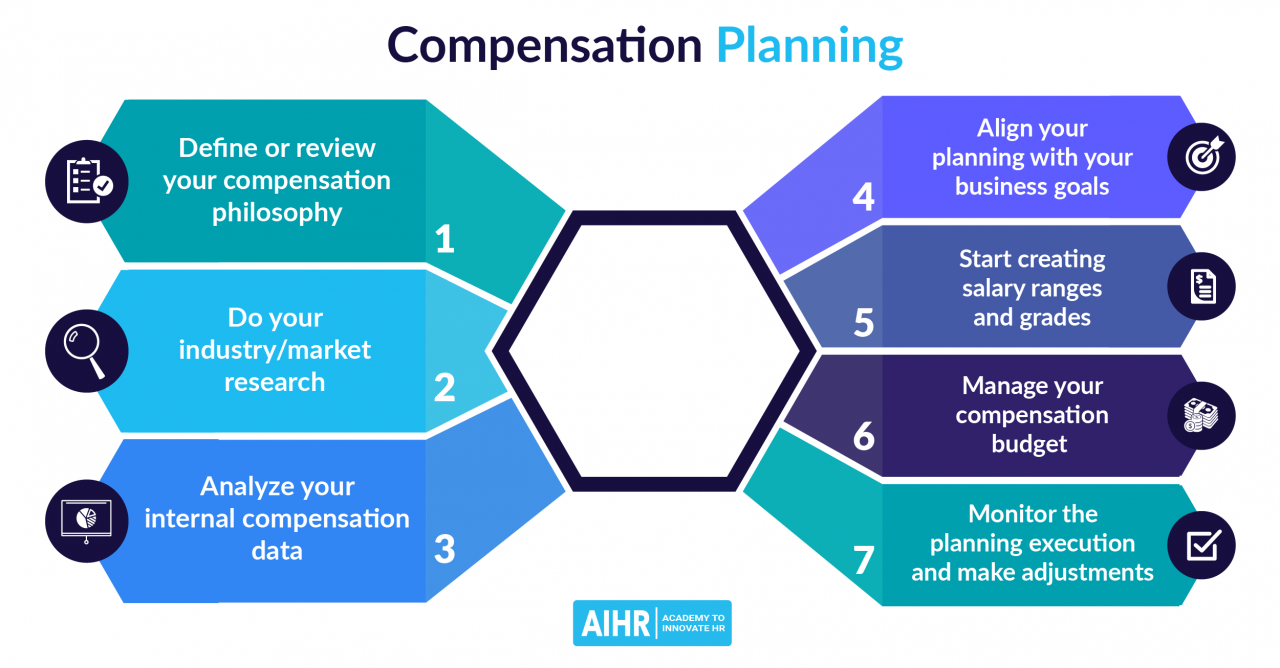8 components of an effective employee compensation plan can make all the difference in attracting and retaining top talent. This comprehensive guide will break down each component, highlighting its benefits and drawbacks to help you create a plan that meets the needs of your organization and employees.
8 Components of an Effective Employee Compensation Plan

Employee compensation plans are a critical component of any business strategy. They can help attract and retain top talent, motivate employees to perform at their best, and ensure that the company is compliant with all applicable laws and regulations.There are many different components that can be included in an employee compensation plan, but the following eight are the most common:
1. Base Pay
Base pay is the fixed amount of money that an employee is paid for their work. It is typically determined by the employee’s job title, experience, and performance. Base pay can be paid on an hourly, weekly, or monthly basis.There
are several advantages to using base pay as a component of an employee compensation plan. First, it is simple and easy to understand. Second, it provides employees with a stable income that they can rely on. Third, it can help to attract and retain top talent.However,
there are also some disadvantages to using base pay. First, it can be inflexible. If the company’s financial performance declines, it may be difficult to reduce base pay. Second, it can create a sense of entitlement among employees. Third, it can be difficult to differentiate between employees who are performing at different levels.
Incentives
Incentives are payments that are made to employees in addition to their base pay. They are typically used to reward employees for good performance or to encourage them to achieve specific goals. Incentives can be paid in a variety of forms, such as cash, stock options, or paid time off.There
are several benefits to using incentives as a component of an employee compensation plan. First, they can help to motivate employees to perform at their best. Second, they can help to align employee goals with the company’s goals. Third, they can help to attract and retain top talent.However,
there are also some drawbacks to using incentives. First, they can be expensive. Second, they can create a sense of competition among employees. Third, they can be difficult to design and implement effectively.
Benefits, 8 components of an effective employee compensation plan
Benefits are non-cash payments that are made to employees in addition to their base pay and incentives. They can include things like health insurance, dental insurance, vision insurance, life insurance, and retirement plans.There are several advantages to offering benefits as a component of an employee compensation plan.
First, they can help to attract and retain top talent. Second, they can help to improve employee morale. Third, they can help to reduce employee turnover.However, there are also some disadvantages to offering benefits. First, they can be expensive.
Second, they can be complex to administer. Third, they can be difficult to communicate to employees.
Final Thoughts: 8 Components Of An Effective Employee Compensation Plan
By considering the 8 components Artikeld in this guide, you can create an employee compensation plan that is competitive, motivating, and sustainable. Remember, a well-structured compensation plan is not just about attracting and retaining employees; it’s about investing in your most valuable asset—your people.
Frequently Asked Questions
What are the most important components of an employee compensation plan?
The most important components of an employee compensation plan are base pay, incentives, benefits, equity, bonuses, commissions, profit sharing, and retirement plans.
What are the benefits of offering a competitive employee compensation plan?
Offering a competitive employee compensation plan can help you attract and retain top talent, improve employee morale and productivity, and reduce turnover.
What are the challenges of designing an effective employee compensation plan?
Some of the challenges of designing an effective employee compensation plan include determining the right mix of components, setting competitive pay rates, and ensuring that the plan is fair and equitable.